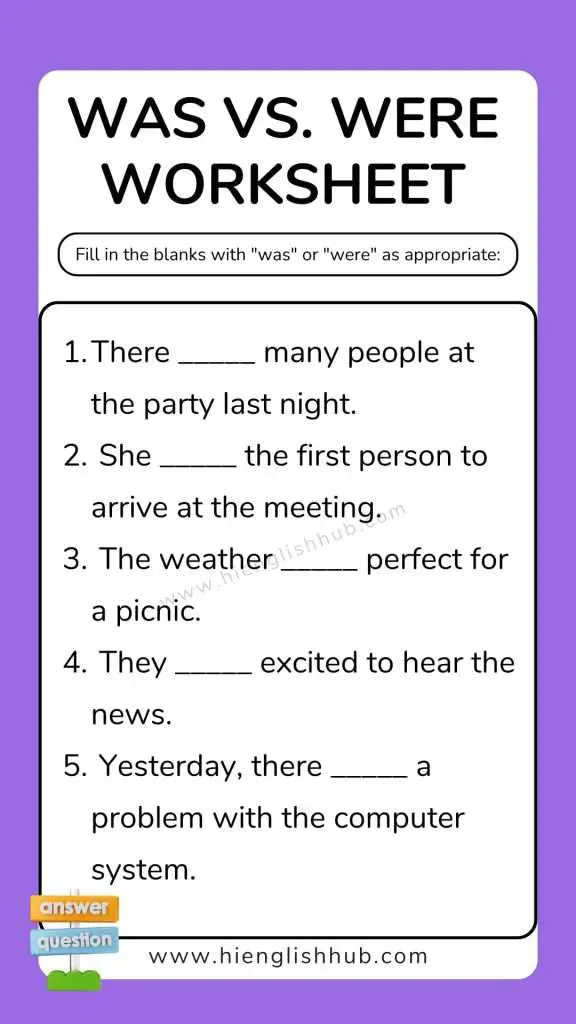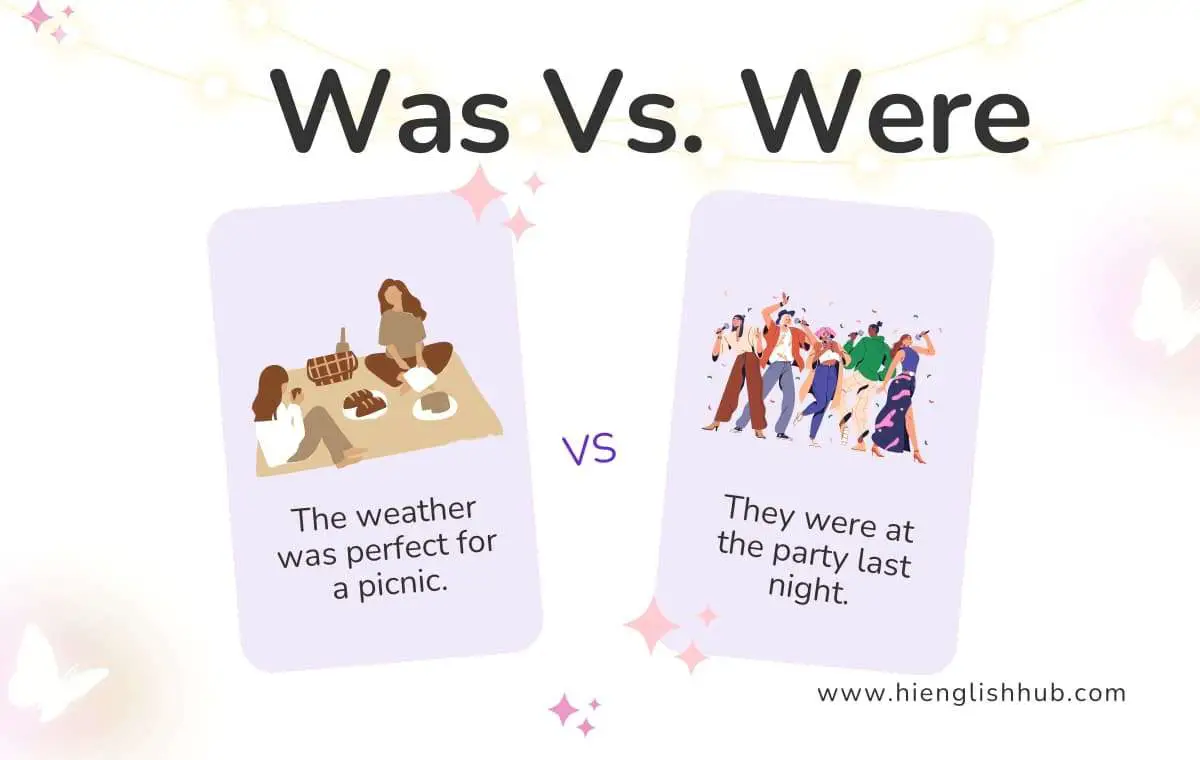Ever found yourself unsure about whether to use “was” or “were” in a sentence?
Don’t worry; you’re not alone! In this blog post, we’re going to chat about the ins and outs of these two tricky—”Was vs. Were.”
Was Vs. Were
Both “was” and “were” are irregular forms of the verb “to be.” They help us talk about existence, states, or actions in the past. However, the trick lies in figuring out when to use each one.
- “Was”: We use “was” when we’re talking about something in the past. For example, “I was at the park yesterday.”
- “Were”: “Were” also deals with the past, but it’s used when we’re talking about more than one person or thing. Like, “They were playing games.”
When To Use Was Vs. Were
| Person | Singular (Past Simple) | Plural (Past Simple) |
|---|---|---|
| First | I was | We were |
| Second | You were | You were |
| Third (He/She/It) | He/She/It was | They were |
If I Was or If I Were: the Conditional Dilemma
One common area of confusion arises when deciding between “if I was” and “if I were” in conditional statements. The choice between these two forms depends on the degree of possibility or reality conveyed in the sentence.
If I Was:
- Use “if I was” when referring to a situation that is more likely or closer to reality.
Example: If I was late to the meeting, I apologize for any inconvenience.
If I Were:
- Opt for “if I were” when describing a hypothetical or unreal situation. This form is commonly used in the subjunctive mood.
Example: If I were a millionaire, I would travel the world.
While “If I were” is commonly used for hypothetical situations, it can also be used for polite suggestions in the second conditional.
Here’s an example: If I were you, I would explore methods to enhance reading speed.
In this case, “If I were you” is a gentle way of suggesting what someone else should consider doing. It’s a more indirect and polite way of offering advice or making a suggestion.
Was vs. Were Worksheet

Fill in the blanks with “was” or “were” as appropriate:
- There _____ many people at the party last night.
- She _____ the first person to arrive at the meeting.
- The weather _____ perfect for a picnic.
- They _____ excited to hear the news.
- Yesterday, there _____ a problem with the computer system.
Answers:
- There were many people at the party last night.
- She was the first person to arrive at the meeting.
- The weather was perfect for a picnic.
- They were excited to hear the news.
- Yesterday, there was a problem with the computer system.
FAQs On was Vs. Were
Is it correct to say I was or I were?
Both “I was” and “I were” are grammatically correct, but they are used in different contexts. “I was” is used in past tense statements or descriptions, while “I were” is used in hypothetical or unreal situations, often in the subjunctive mood. For example:
- Past tense: “Yesterday, I was at the park.”
- Subjunctive mood: “If I were you, I would study for the exam.”
What is the difference between using is and was?
“Is” is the present tense form of the verb “to be,” used when referring to something happening in the present or the current state. For example: “She is a teacher.”
“Was” is the past tense form of the verb “to be,” used when referring to something that occurred in the past. For example: “Yesterday, she was at the school.”
What are the 10 examples of were?
- They were at the party last night.
- If I were taller, I could reach the top shelf.
- We were planning to go on a vacation.
- The books were on the shelf.
- The keys were on the table.
- If it were sunny, we would go for a picnic.
- They were excited about the truth or dare game.
- They were good friends in college.
- The cookies were delicious.
- The flowers were in full bloom.
Do we say if I were you?
Yes, “If I were you” is a correct usage. It is a common expression in the subjunctive mood, used to give advice or make recommendations. For example: “If I were you, I would take the job offer.”
Why do we say I wish I were?
The phrase “I wish I were” is in the subjunctive mood and is used to express a desire for something that is currently not true. It is used to talk about unreal or hypothetical situations. For example: “I wish I were on vacation right now.” This implies that the speaker is not currently on vacation but desires to be.

